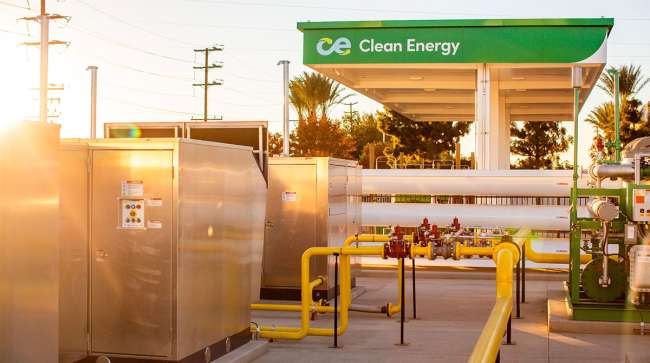Bloomberg News
US Risks Missing Emissions Goals Due to Natural Gas Reliance

[Stay on top of transportation news: Get TTNews in your inbox.]
America’s struggle to curb its emissions from natural gas threatens to undermine the Biden administration’s goal of having 100% carbon-free power generation by 2035, according to BloombergNEF.
U.S. energy-related emissions peaked in 2007 and have since fallen at an average rate of 1.8% per year, BNEF said Sept. 25 in its New Energy Outlook for the U.S. But BNEF predicts that the annual pace of decarbonization will slow to 1.6% from now until 2050 in its base-case scenario — meaning only 40% of today’s emissions are cut by mid-century.
“With time running out, the U.S. needs to reduce emissions sharply and across all sectors if it’s to be a credible actor in the global push to net zero,” the report said. “That means stronger mandates and harder pushes are needed.”
Emissions from the power industry must fall immediately — dropping to 26% of last year’s levels by 2030, BNEF said, noting that would result in the U.S. having 82% carbon-free generation by 2035 — short of the government goal. The U.S. must reduce gas-related emissions through measures including electrification of buildings and industry and adoption of carbon-capture technology in the power sector to reach its net-zero target, BNEF said.
Want more news? Listen to today's daily briefing above or go here for more info
The U.S. faces challenges in weaning off the cheap fossil fuel since plans to build new gas-fired plants is rising at the fastest pace in years as utilities race to add more generation to address surging demand from data centers, manufacturing and electrification.
The power industry “has been the fastest to decarbonize among all sectors in the U.S. energy economy,” the report said, adding that it “needs to go above and beyond to allow slower-moving sectors room to shift.”




